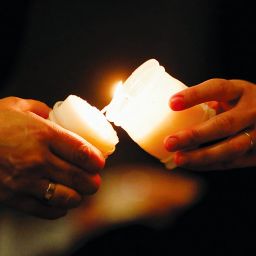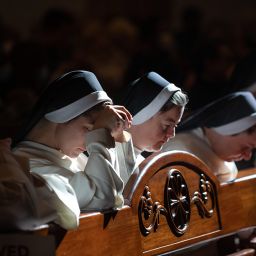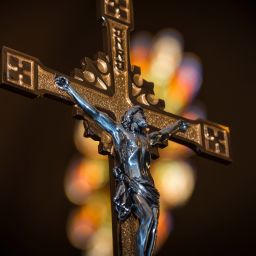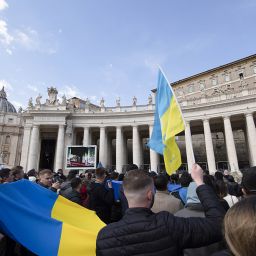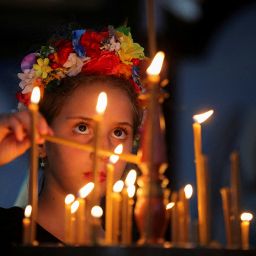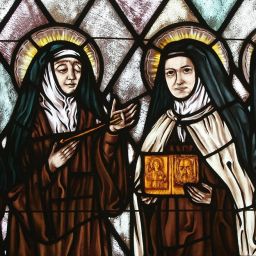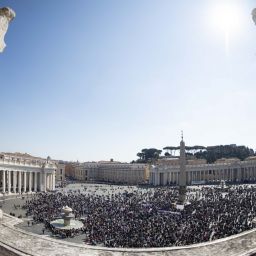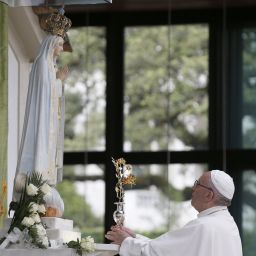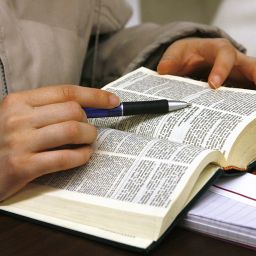Father Thomas Esposito
Special to The Texas Catholic
A curious pattern of exile is evident in the endings of several Old Testament books. After God promises Abram the land of Canaan, the patriarch must immediately flee to Egypt because of a famine (Genesis 12); his descendants, the sons of Jacob, repeat the expedition for the same reason (Genesis 42-47). The final word of Genesis, “Egypt,” ominously foreshadows the drama of slavery and liberation narrated in the second biblical book. The conclusion of Deuteronomy features Moses dying before he can lead the Israelites across the Jordan River (Deuteronomy 34:1-12). The Pentateuch, therefore, finishes with the Israelites, having sojourned for 40 years as the entire generation who left Egypt perishes in the wilderness, outside the land.
The book placed at the end of the Hebrew Bible, Second Chronicles, likewise concludes with the word of Cyrus of Persia pledging that those exiled by the Babylonians may return to their homes if they wish (2 Chronicles 36:23). The Hebrew Bible, in other words, anticipates but ends without a happy ending – the people of Israel are dwelling in exile, away from their land.
Jesus himself embodies this narrative in his public ministry. Though he grows up in Nazareth and uses Capernaum as his base of operations, he begins his ministry as an itinerant preacher in the desert, and asserts plainly that “the Son of Man has nowhere to lay his head” (Luke 9:58).
These biblical testimonies are echoed down the centuries of Christian tradition; one example among many is the Salve Regina chant, which features a tender plea to Mary: “And after this, our exile, show unto us the blessed fruit of thy womb, Jesus.”
So why do we experience life as a long exile from a home that we yearn for without ever inhabiting?
A wise priest recently offered a reply to this question. He claimed that knowing we are in exile is itself a gift — it makes possible the intuition that we do in fact have a home, and are made to find it. That thought is meant to reassure us, and to enkindle in us a pilgrim desire to seek it.
This, then, is the burden and privilege of Lent: to realize, while we wander in the wilderness, that faith is a future tense matter. We believe that Christ inhabited our desert and conquered its desolate terrain so that we might do the same, as eventual conquerors of sin and death thanks to His resurrection. If He remains with us and in us, accompanying us on our way (however blind we may be to His presence) and giving Himself to us under the guise of bread, then we can already see the transfigured glory of life illuminating our path in this drawn-out exile.
Elder Zosima, the venerable monk in Dostoevsky’s spiritual masterpiece The Brothers Karamazov, expresses this beautiful truth in the language of roots and seeds:
“Verily, upon earth we are, in a manner of speaking, out wandering, and were it not for the precious image of Christ before us we should have perished and wandered astray for good, like the human race before the Flood. Much upon earth is concealed from us, but in recompense for that we have been gifted with a mysterious, sacred sense of our living connection with another world, with a celestial and higher world, and indeed the roots of our thoughts and emotions are not here, but in other worlds. That is why the philosophers say that it is impossible to grasp the essence of things upon earth. God took seeds from other worlds and sowed them upon this earth and cultivated his garden, and all that could come up, did so, but that which has grown lives and has its life only in the sense of its mysterious contiguity with other worlds, and if that sense weakens or is destroyed in you, then what has grown dies within you.”
May that sense of the sacred, those seeds of resurrected life, be planted in the portable soil of our hearts as we go our exiled way.
Father Thomas Esposito, O.Cist., is a monk at the Cistercian Abbey of Our Lady of Dallas and teaches in the theology department at the University of Dallas.


